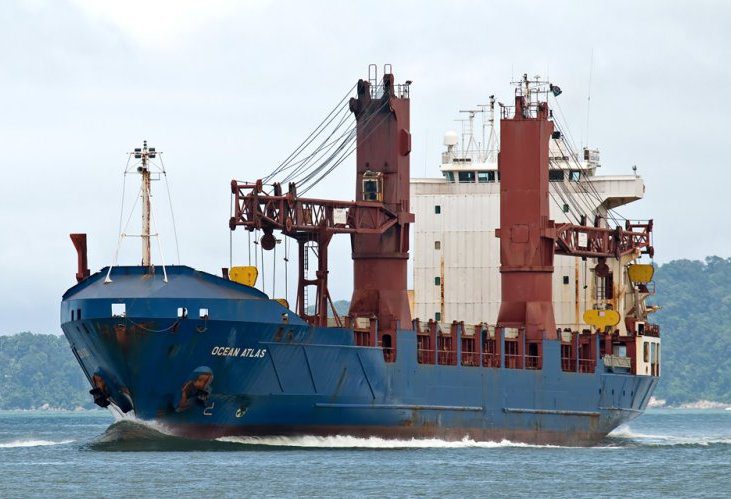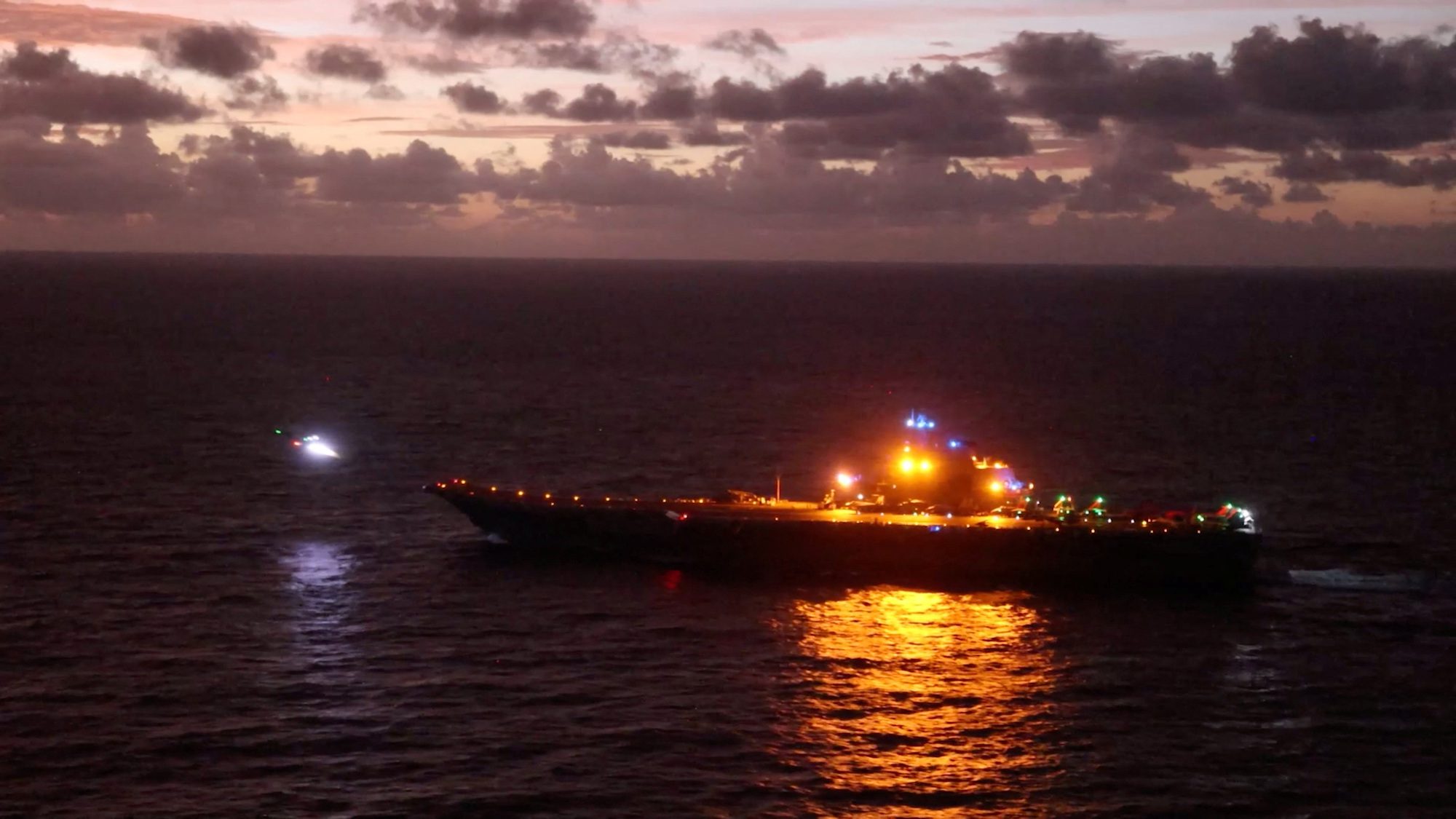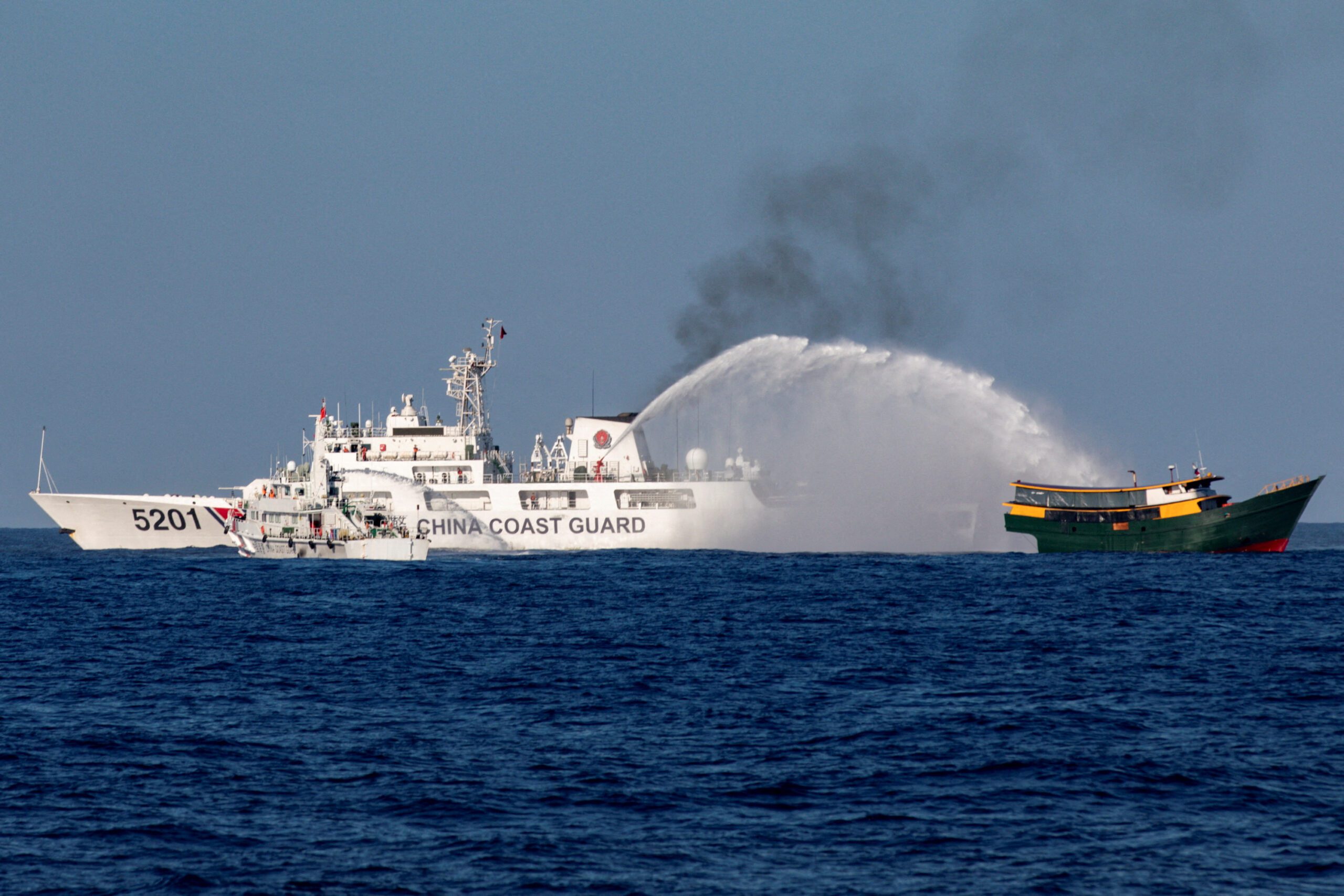Ocean Atlas, image courtesy C.R. Cushing & Co
– By Captain Rich Madden
MV Ocean Atlas is a U.S. flagged cargo ship which fell afoul of Venezuelan authorities during a recent port call in Maracaibo. Although the situation has been resolved, with Ocean Atlas said to have sailed on Friday, September 14th, this incident highlights a growing issue in the maritime industry. Aside from the alarming trend of criminalizing merchant mariners, whether for pollution incidents or other serious marine incidents, there are many countries threatening criminal and civil penalties for carrying weapons on board merchant vessels for self-defense.
Somali piracy off the Horn of Africa has been at least temporarily suppressed, largely through the use of armed security teams. Piracy off the West coast of Africa in the Gulf of Guinea off Nigeria, Togo and Benin is skyrocketing. It is highly likely that Private Maritime Security Companies (PMSC – an IMO designation) will find increasing employment off the West coast of Africa as well.
Armed security teams means that arms (weapons) will have to be on-board the ships. But, how to get them there?
Due to the difficulty of transporting weapons and gear through foreign countries en-route to a vessel, many shipping companies have found it easier to load weapons and ammunition in their home countries. This eliminates the issues arising from transporting weapons through airports or shipping them to a ship’s agent in a foreign port. When the vessel approaches the High Risk area, the Privately Contracted Armed Security Personnel (PCASP – another IMO designation) fly out, join the vessel and break out the weapons stored onboard. Unfortunately, this tactic of having weapons on-board the vessel at all times, regardless of where the ship is operating, brings about exactly the situation in which Ocean Atlas‘s crew found themselves.
Another option that has gained some traction is the use of floating armories. In this case, a vessel such as a converted oilfield supply boat, is stationed in the Red Sea, Straits of Hormuz or South of Mozambique to board provide passing vessels with security teams their weapons. This eliminates the issues involved with merchant vessels arriving in port with weapons onboard. It does however, create the necessity for an open ocean transfer of weapons and/or personnel. Such a transfer is not always the easiest – whether due to sea conditions or time of day.
The following video is courtesy of ABC News and provides some good insight into the world of armed security onboard merchant vessels :
ABC News Nightline – Fighting Pirates Overseas
There are many countries that have implemented regulations and/or procedures for dealing with weapons entering their ports. The following are some of the ones that have come up recently :
- Egypt : Currently illegal to have weapons on-board while transiting coastal waters or Suez Canal. In order to transit Suez Canal, the offload of weapons and land transport to the other end of the canal is required.
- India : Weapons and ammunition must be secured in a locked weapon safe when entering Indian territorial (12 nm offshore) waters. Vessels transiting the Indian EEZ (200 nm offshore) and carrying armed security must make reports to Indian Coast Guard and Navy. In either case, a complete declaration of security personnel and weapons must be made within 96 hours of entering Indian EEZ.
- Yemen : Substantial “fee” normally paid by shipping agent to Yemeni Coast Guard.
- Kenya : Weapons required to be removed from vessel and stored in armory ashore during port stay.
- South Africa : 96 hours (4 days) notice required. Numerous ship masters have been detained and charged under the Fire Arms Control Act. Previously, 21 days notice had been required prior to arrival when carrying weapons for self-defense.
- Venezuela : As per U.S. Coast Guard, “Vessels planning to enter Venezuelan ports and carrying security weapons, are advised to ensure proper registration and confirmation from the appropriate Venezuelan Customs authorities prior to entry, and to heed any concerns regarding their carriage by country agents.
Further encouragement is given to reconsider the need to carry weapons on your vessel during port calls in this country. This equally applies in other ports. There are still grey areas and ports may have rules that do not match with the country rules.”
In all cases, weapons and ammunition must be declared to customs officials. Not doing so will leave the imprudent master w-i-d-e open to criminal charges and penalties. Contacting the company’s agent well in advance of arrival in a foreign port for advice is highly recommended. This will allow time to make entry declarations and notices in a timely manner.
As piracy is growing off the West coast of Africa and the underlying cause of Somali piracy has not been addressed, the need for on-board security personnel and in particular, armed personnel, does not appear to be going away anytime soon. Proper education in regulations and security procedures is essential for any deck officer sailing in High Risk waters. If formal training is not available to you, there are ample online sources including IMO, UKMTO, SAMI, IAMSP, ASIS, ICS/ISF and BIMCO to name just a few. Regulations, procedures and security risks change on a daily basis – just because something worked or was acceptable on the last voyage doesn’t mean it is now.
Captain Richard Madden is a maritime consultant and SUNY Maritime graduate with over 20 years of industry experience. He holds a USCG Unlimited Master’s license and has sailed on government vessels, offshore towing vessels, tankers, container ships, coastal towing and general cargo vessels.

 Join The Club
Join The Club











